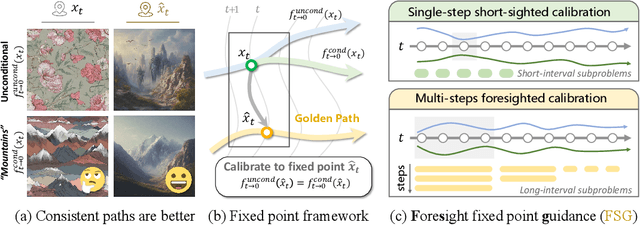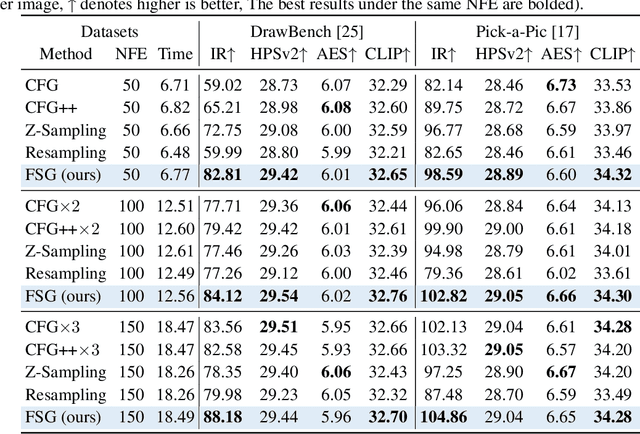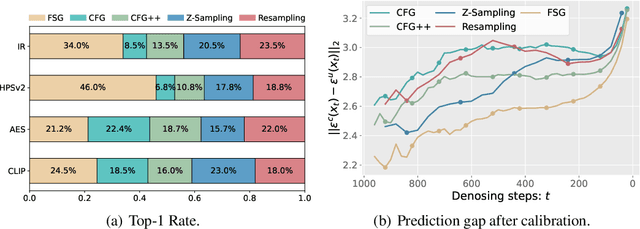Towards a Golden Classifier-Free Guidance Path via Foresight Fixed Point Iterations
Paper and Code
Oct 24, 2025



Classifier-Free Guidance (CFG) is an essential component of text-to-image diffusion models, and understanding and advancing its operational mechanisms remains a central focus of research. Existing approaches stem from divergent theoretical interpretations, thereby limiting the design space and obscuring key design choices. To address this, we propose a unified perspective that reframes conditional guidance as fixed point iterations, seeking to identify a golden path where latents produce consistent outputs under both conditional and unconditional generation. We demonstrate that CFG and its variants constitute a special case of single-step short-interval iteration, which is theoretically proven to exhibit inefficiency. To this end, we introduce Foresight Guidance (FSG), which prioritizes solving longer-interval subproblems in early diffusion stages with increased iterations. Extensive experiments across diverse datasets and model architectures validate the superiority of FSG over state-of-the-art methods in both image quality and computational efficiency. Our work offers novel perspectives for conditional guidance and unlocks the potential of adaptive design.
 Add to Chrome
Add to Chrome Add to Firefox
Add to Firefox Add to Edge
Add to Edge